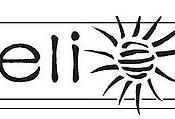A Prophetic Voice in Our Midst
As the decade of the 1960's moved onward from its hopeful beginnings through the ordeal of assassinations, urban crises, and protracted war to the opening of yet another new frontier in outer space, a disquieting voice was heard increasingly throughout America. The voice was that of Rabbi Abraham Joshua Heschel. On college and university campuses, at Christian seminaries as well as Jewish rabbinical assemblies, at colloquies on race relations and in the corridors of power, he spoke on the sensitive and difficult problems of the day in the best tradition of the Western conscience and of its biblical roots.
Even in his physical appearance conjuring up the image of what an Amos or an Isaiah must have looked like--stocky, full-bearded, speaking softly but with passionate intensity--itsmall wonder that many viewed him as a latter-day Hebrew prophet. Heschel would reject the title, since, according to Jewish teaching, prophecy ceased in biblical times; yet in the adjectival sense, his was surely a "prophetic" voice.
He himself provided the best description of what it would mean to stand in this tradition.
"The prophet," he wrote, is a man who feels fiercely. God has thrust a burden upon his soul, and he is bowed and stunned at man's fierce greed."
Frightful is the agony of man ; no human voice can convey its full terror. Prophecy is the voice that God has lent to the silent agony, a voice to the plundered poor, to the profaned riches of the world. . . . God is raging in the prophet's words
It was at this deeper level that Abraham Heschel's protest was directed. To withdraw from Vietnam would no doubt mean losing face, he admitted (he understood the dilemmas of the policy-makers), but to remain there would mean...


